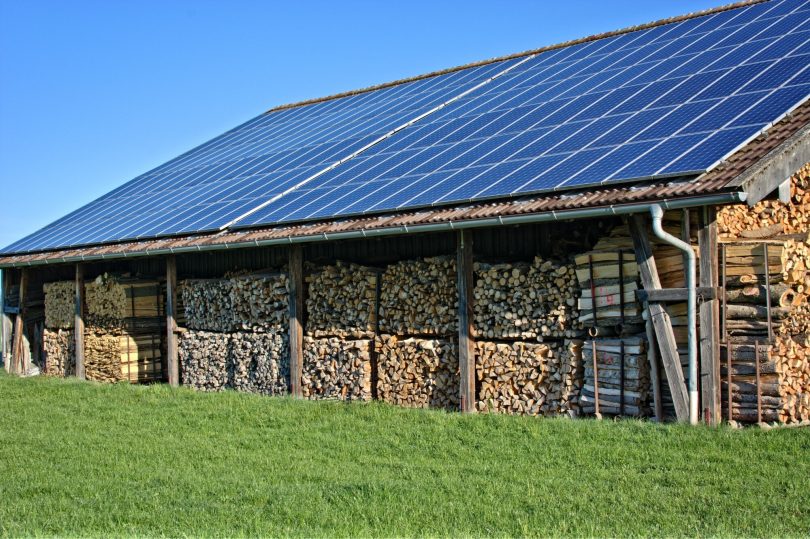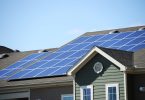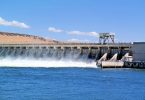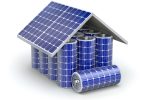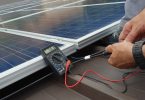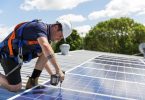According to the U.S. Energy Information Administration, solar generation accounts for about 3 percent of all electricity generation in America. By 2050, that amount should hit 20 percent.
Residential solar is a big part of this. Installation rates continue to climb, and there are now more solar companies and products to choose from than ever before. This means there are more decisions to make regarding solar power systems and installation.
Below, we have compiled nine of the most common questions homeowners have before going solar. This information will help you determine if solar power for home electricity is right for you.
1. What Are the Benefits of Solar Energy?
There are many advantages to residential solar power installation. One of the biggest is an offset to utility bills (which we will cover below). It also adds value to your home.
There are huge environmental benefits to solar energy as well. Reducing your carbon footprint is one of them.
As a renewable source of power, solar power systems play an important role in reducing greenhouse gas emissions that come from the mining and burning of fossil fuels. These emissions contribute to climate change and poorer air quality in general.
Solar also helps protect wildlife and ecosystems. It reduces water use that fossil fuel and nuclear energy protection require. It also puts no pollutants or heated water (as with nuclear) back into rivers, reservoirs, or other bodies of water.
2. How Do I Know if My Home Is Suitable for Solar?
This is an important question, but it is one with a different answer than even a few years ago. In general, yes, your roof must have some access to sun rays for your solar panel system to produce electricity. And, the more sunlight it gets, the greater potential for energy production.
Traditionally, a south-facing roof was ideal and a north-facing one is acceptable. This is still preferable but, depending on the slope of your roof, it is no longer essential.
Part of the reason for this is that new technologies make solar feasible even if your roof does not have the perfect angle or surface. More efficient solar panels alone make it possible to capture adequate energy from the sun during smaller windows during the day.
Most reputable solar companies offer free estimates. The layout of your roof will be one of the first things they look at before moving forward with any other plans. With a basic assessment and calculations, they should be able to tell you–not just whether it is possible–but how much energy production you can expect.
3. How Much Do Solar Power Systems Cost?
In general, a small solar power system (enough for the average-sized home) costs between $16,000 and $24,000 after tax credits. But how much you will pay depends on several factors.
One is where you live. Per-kilowatt installation varies by state and municipality.
It also depends on the type of solar panels you use. If you have the right roof space and angle, less efficient but cheaper polycrystalline or thin-film panels can save you a lot of money. More efficient monocrystalline (made from a single photovoltaic cell of silicon) are much more efficient and will take up much less space, but will cost more.
4. Is Leasing Advisable?
Leasing solar panels is a simple way to avoid paying hefty upfront costs for the equipment and installation. Leases can be as low as $50 to $250 a month. It allows you to reap the benefits of solar, including a lower utility bill, without paying full price for it.
The obvious downside is that you do not own the panels or equipment installed on your roof. So, one of the biggest factors to consider, if you are weighing this option, is whether you plan to stay in your home for the duration of the lease.
As a third alternative, you might look for solar installation companies that offer payment plans. These monthly payments are comparable to leasing rates.
5. How Much Will I Save On My Electric Bill?
In short, the amount solar panels will save you on utilities depends on the level of energy they produce. As we already stated, this has much to do with the layout of your roof and the quality of the panels you purchase. It also has a lot to do with the cost of electricity where you live.
Another factor is whether net metering is available in your state and with your utility. This allows you to sell back any extra electricity you do not use to the grid, which can further reduce your utility bill.
6. What Rebates Are Available?
Federal tax credits are available for all residential solar installations in the United States. This is 30 percent through 2032. The rebate covers the costs of the panels, other equipment, and labor for installation.
State and local rebates are often available, but they vary by location. A prominent solar installation company should be able to tell you what they are and how to access them.
7. How Long Does Installation Take?
Depending on the size of your system and any potential complications, solar installation can take as little as an afternoon.
At most, you can expect two days for technicians to complete the project.
8. How Long Do Solar Panels Last?
That is an important question, because there is often confusion about this issue. You may have heard that solar panels last between 25 and 30 years. This is incorrect, as that is the period before which their effectiveness begins to diminish.
The rate of degradation varies among panels. According to the National Renewable Energy Laboratory, on average panel production will diminish by 0.5 percent per year. This means they will produce about 89 percent of their original output after 25 years.
9. What Kind of Maintenance Do Solar Panels Require?
Solar panels need very little upkeep. An annual inspection can make sure your system is running as efficiently as possible.
Otherwise, keeping debris off their surfaces is the only maintenance requirement.
Learn More About Solar Installation Near You
Now that you have answers to some of the common questions homeowners have about solar power systems, you can determine if it is right for you. It is a great way to lower utility rates, add value to your home, and help the environment.
Solar For Your House is a renewable energy information and directory website. We provide free resources to help educate the public about making environmentally sensitive and smart decisions.
Read more on our blog or reach out to us with any questions you might have.
